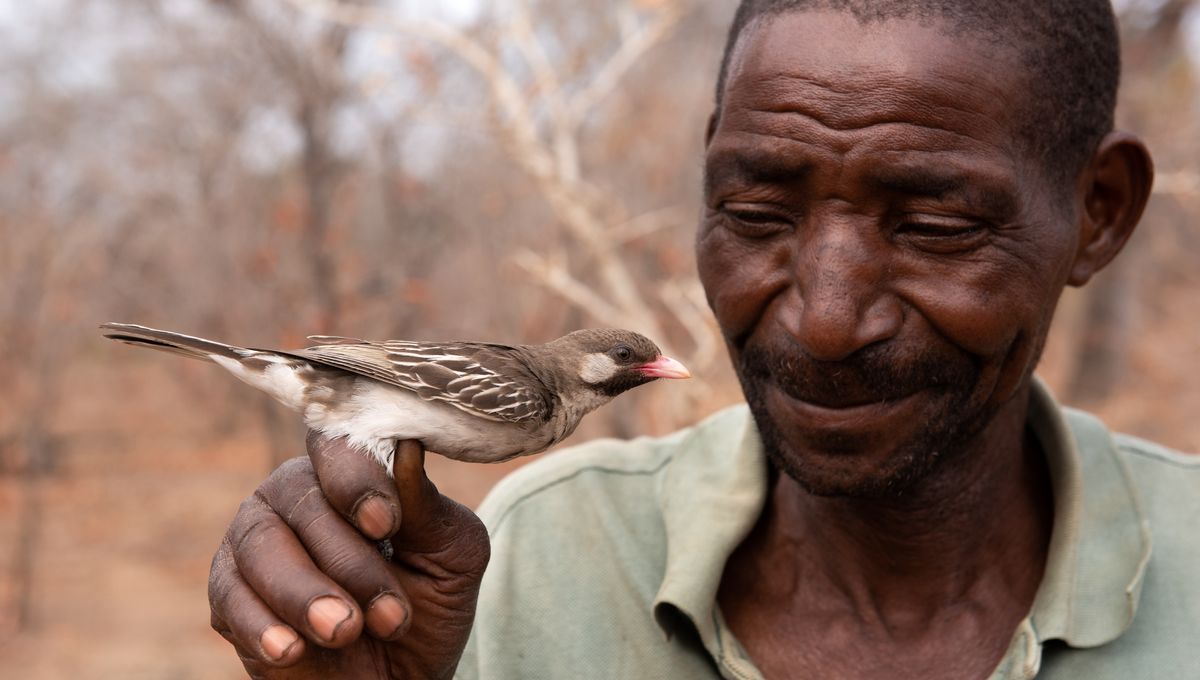
While working on group projects might be the bane of every college student’s life, new research has shown that sometimes, groups can work together successfully. Greater honeyguides (Indicator indicator), a small species of African bird, are known to guide both honey badgers and humans to beehives. By studying these human-bird interactions, researchers have shown that the birds respond more readily to calls from their local honey-hunting humans than they do to the calls of honey-hunters from other regions.
This honeybird to honey-hunter relationship is mutually beneficial, with both the humans and the birds getting a treat out of it. While people harvest the honey, the birds can enjoy the wax and beetle larvae. The honeyguides are able to remember the locations of the beehives and lead the people to the site. This new study builds on previous work carried out by the same team.
“Honeyguides seem to know the landscape intimately, gathering knowledge about the location of bee nests, which they then share with people, ” said Claire Spottiswood, co-author of the new paper in a statement. “People are eager for the bird’s help.”
Not only do the birds have excellent memories, but they also respond to the calls of the people seeking honey. Honey hunters from the Yao people of Mozambique have a call that consists of a trill followed by a grunt when following the birds. The Hadza in Tanzania use a whistle instead, while different groups across Africa use different calls to achieve the same outcome. The calls are passed down from elders in the communities and the groups report that they do not change the calls, as they will not find as much honey with the birds if they do.
“Our study demonstrates the bird’s ability to learn distinct vocal signals that are traditionally used by different honey-hunting communities, expanding possibilities for mutually beneficial cooperation with people,” said co-author Brian Wood.
Given that people learn the calls from the elders of their communities, the team thinks that the relationship between the honeyguides and the honey hunters will remain stable over time.
“The benefits of the honey-hunter-honeyguide relationship should produce long-lasting, ‘sticky’ traditions,” Wood concluded.
The study is published in Science.
Source Link: Honey-Hunting Birds And Humans Work Together And Know Each Other’s Calls